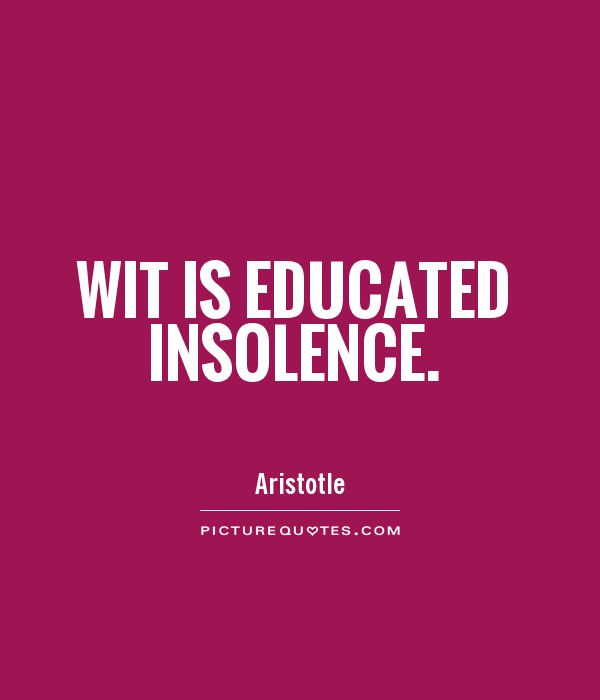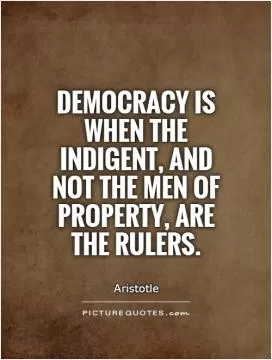Wit is educated insolence

Wit is educated insolence
In the context of Aristotle's words, the phrase "wit is educated insolence" holds a significant meaning that reflects the philosopher's views on the nature of humor and intelligence. Aristotle, a renowned Greek philosopher and thinker, believed that wit, or cleverness in speech and thought, was a valuable trait that could be used to challenge authority and conventional wisdom. However, he also recognized that wit could be misused as a tool for arrogance and disrespect, hence the term "educated insolence."Aristotle's concept of wit as educated insolence suggests that true intelligence involves not only the ability to think critically and creatively but also the wisdom to use one's wit in a responsible and respectful manner. In other words, being clever or witty is not enough; one must also be educated and well-informed in order to wield their wit effectively. This idea aligns with Aristotle's broader philosophy of ethics and virtue, which emphasizes the importance of moderation, self-control, and moral character in all aspects of life.
Furthermore, Aristotle's words on wit as educated insolence can be seen as a cautionary reminder to those who possess intellectual prowess but lack humility or empathy. While wit can be a powerful tool for challenging authority and sparking intellectual debate, it can also be used to belittle or demean others if not used judiciously. By emphasizing the importance of education and self-awareness in the exercise of wit, Aristotle encourages individuals to cultivate their intelligence in a way that promotes understanding, dialogue, and mutual respect.
Overall, Aristotle's words on wit as educated insolence serve as a timeless reminder of the complex relationship between intelligence and character. While wit can be a valuable asset in intellectual discourse and social interaction, it must be tempered with humility, empathy, and a sense of responsibility towards others. By embracing the concept of educated insolence, individuals can harness the power of their wit to challenge authority, provoke thought, and inspire change while also upholding the values of respect, integrity, and ethical conduct.












 Friendship Quotes
Friendship Quotes Love Quotes
Love Quotes Life Quotes
Life Quotes Funny Quotes
Funny Quotes Motivational Quotes
Motivational Quotes Inspirational Quotes
Inspirational Quotes